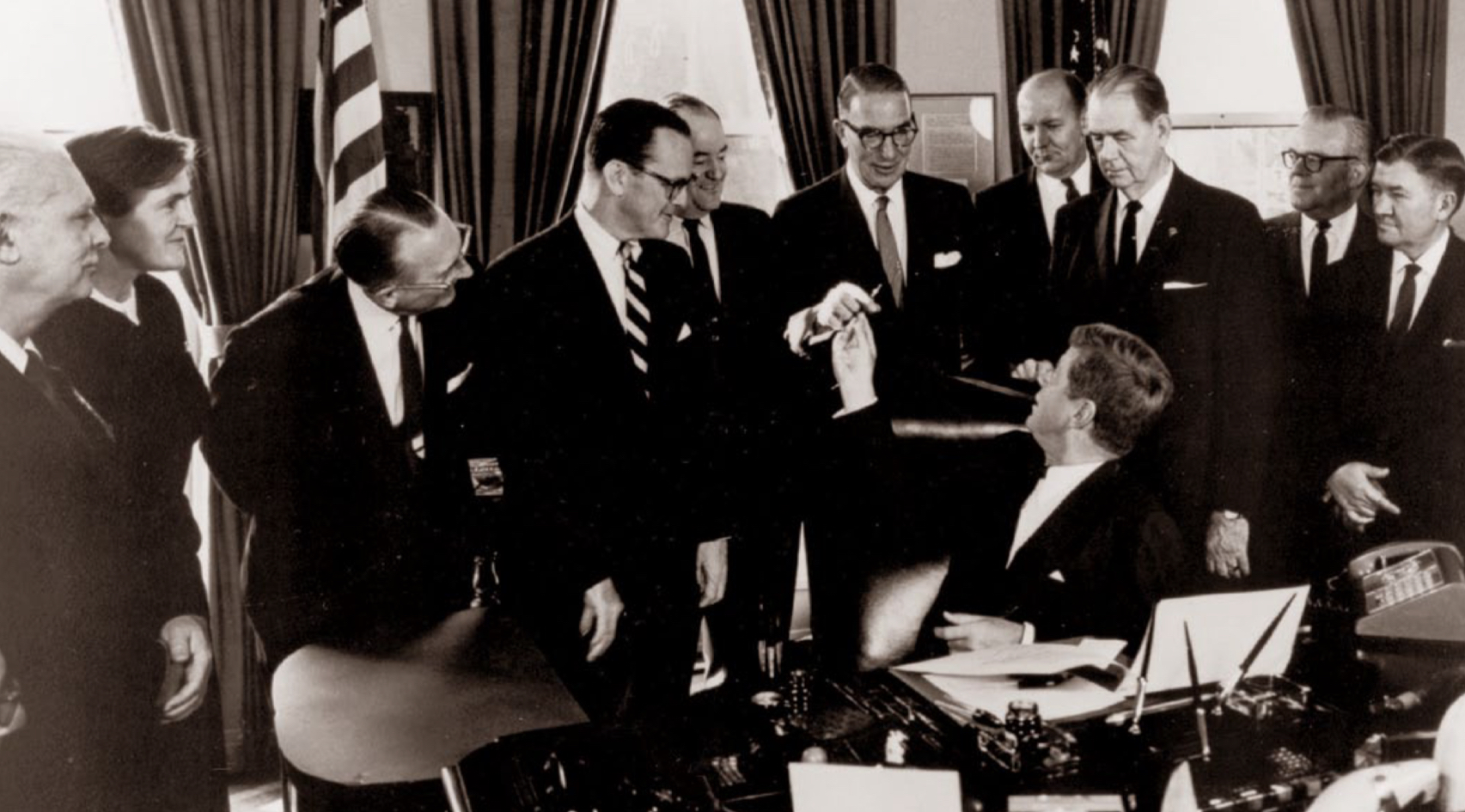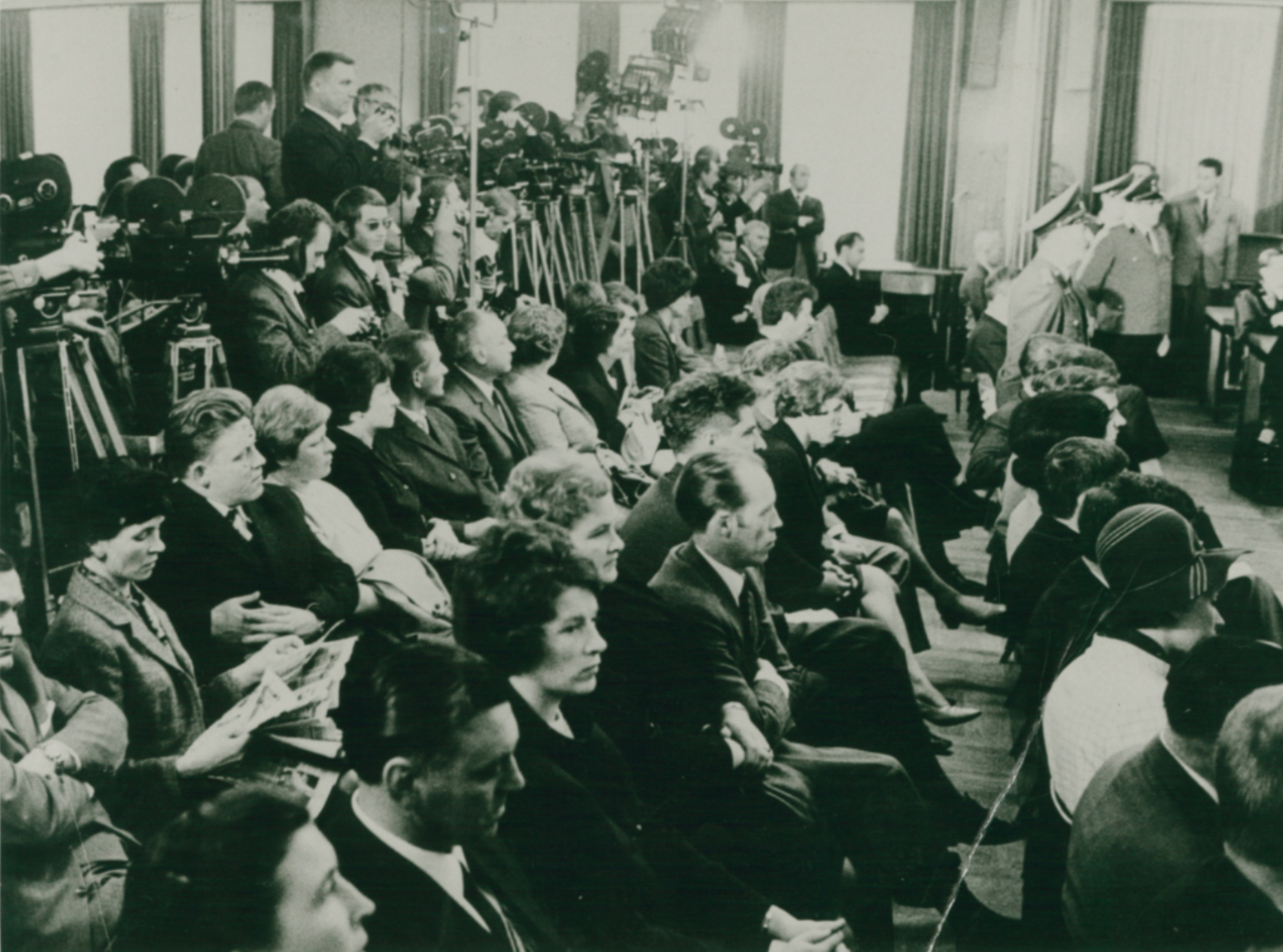
President John F. Kennedy handing Sen. Estes Kefauver the pen he used to sign the ammendments, 1962, FDA
The Kefauver-Harris Amendment

President John F. Kennedy handing Sen. Estes Kefauver the pen he used to sign the ammendments, 1962, FDA
Thalidomide was withdrawn from the German market in 1961. Just one year later in October of 1962, congress passed the Kefauver-Harris amendments to the federal FD&C act. These amendments ensured that before pharmaceutical companies could market a new medication, the company not only had to prove safety, but also “provide substantial evidence of effectiveness for the product's intended use.” (Michelle Meadows)
"It is well known that Congress passed the Kefauver-Harris ammendment to Food, Drug, and Cosmetic Act in response to the Thalidomide tragedy of the early 1960s."
~ American Institute of the History of Pharmacy
"The legislation was passed unanimously by both houses of Congress on Oct.2, 1962, and signed into law by President Kennedy eight days later."
~FDA
The Shadow of the Thalidomide Tragedy, New York Times
“With the passage of the amendments, FDA was no longer a helpless bystander while unproven medicines were streaming into pharmacies and onto patients’ bedside tables." (Hamburg)
Dr. Frances Oldham Kelsey
In August 1962, Frances Kelsey was awarded the President’s medal for Distinguished Federal Civilian Service for her judgment in evaluating Thalidomide. She was credited with preventing the Thalidomide tragedy in the U.S., and protecting Americans from the magnitude of tragedy happening in Germany.
"Dr. Kelsey moved on to head the Investigational Drugs Branch, and from the late 1960s until the 1990s she led the Division of Scientific Investigations, which oversaw clinical investigators, ensuring the scientific integrity of the data on which the agency’s drug decision-making were largely based." (FDA)

Frances Kelsey recieving award from John F. Kennedy, FDA
The Thalidomide Trial

Thalidomide trial 1968, Grunenthal
In 1968, a criminal trial began in west Germany. The trial accused nine senior Grunenthal employees with negligent homicide and injury. In April of 1970, Grunenthal settled with the victims. The trial ended in December of 1970, no one was found guilty.
“It was one of the most complex criminal proceedings in German legal history.” (Grunenthal)
The foundation paid victims of thalidomide a one-time sum of 2,500–25,000 DM, and a monthly stipend of 100–450 DM. The amount they were given was based on the severity of their disabilities. The monthly stipends have since been raised, and are now being paid by the government.